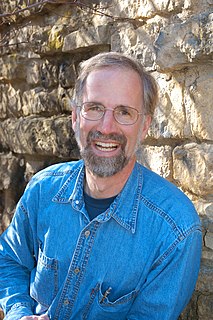A Quote by Story Musgrave
It's hard to say what drives a three year-old, but I think I had a sense that nature was my solace, and nature was a place in which there was beauty, in which there was order.
Related Quotes
When I speak of knowledge of nature, I do not mean industrial science, which argues that nature is inert and can be understood only to enable humans to manipulate it. I mean that sense of nature that Aldo Leopold had in mind when he said, "A thing is right when it tends to preserve the integrity, stability, and beauty of the biotic community, wrong when it tends otherwise.
The scientist does not study nature because it is useful to do so. He studies it because he takes pleasure in it, and he takes pleasure in it because it is beautiful. If nature were not beautiful it would not be worth knowing, and life would not be worth living. I am not speaking, of course, of the beauty which strikes the senses, of the beauty of qualities and appearances. I am far from despising this, but it has nothing to do with science. What I mean is that more intimate beauty which comes from the harmonious order of its parts, and which a pure intelligence can grasp.
Again, if the world is destroyed, it must needs either be destroyed according to nature or against nature. Against nature is impossible, for that which is against nature is not stronger than nature. If according to nature, there must be another nature which changes the nature of the world: which does not appear.
When the ground was partially bare of snow, and a few warm days had dried its surface somewhat, it was pleasant to compare the first tender signs of the infant year just peeping forth with the stately beauty of the withered vegetation which had withstood the winterdecent weeds, at least, which widowed Nature wears.
At a time when threats to the physical environment have never been greater, it may be tempting to believe that people need to be mounting the barricades rather than asking abstract questions about the human place in nature. Yet without confronting such questions, it will be hard to know which barricades to mount, and harder still to persuade large numbers of people to mount them with us. To protect the nature that is all around us, we must think long and hard about the nature we carry inside our heads.
You may object that by speaking of simplicity and beauty I am introducing aesthetic criteria of truth, and I frankly admit that I am strongly attracted by the simplicity and beauty of mathematical schemes which nature presents us. You must have felt this too: the almost frightening simplicity and wholeness of the relationship, which nature suddenly spreads out before us.
Is it wholly fantastic to admit the possibility that Nature herself strove toward what we call beauty? Face to face with any one of the elaborate flowers which man's cultivation has had nothing to do with, it does not seem fantastic to me. We put survival first. But when we have a margin of safety left over, we expend it in the search for the beautiful. Who can say that Nature does not do the same?


































